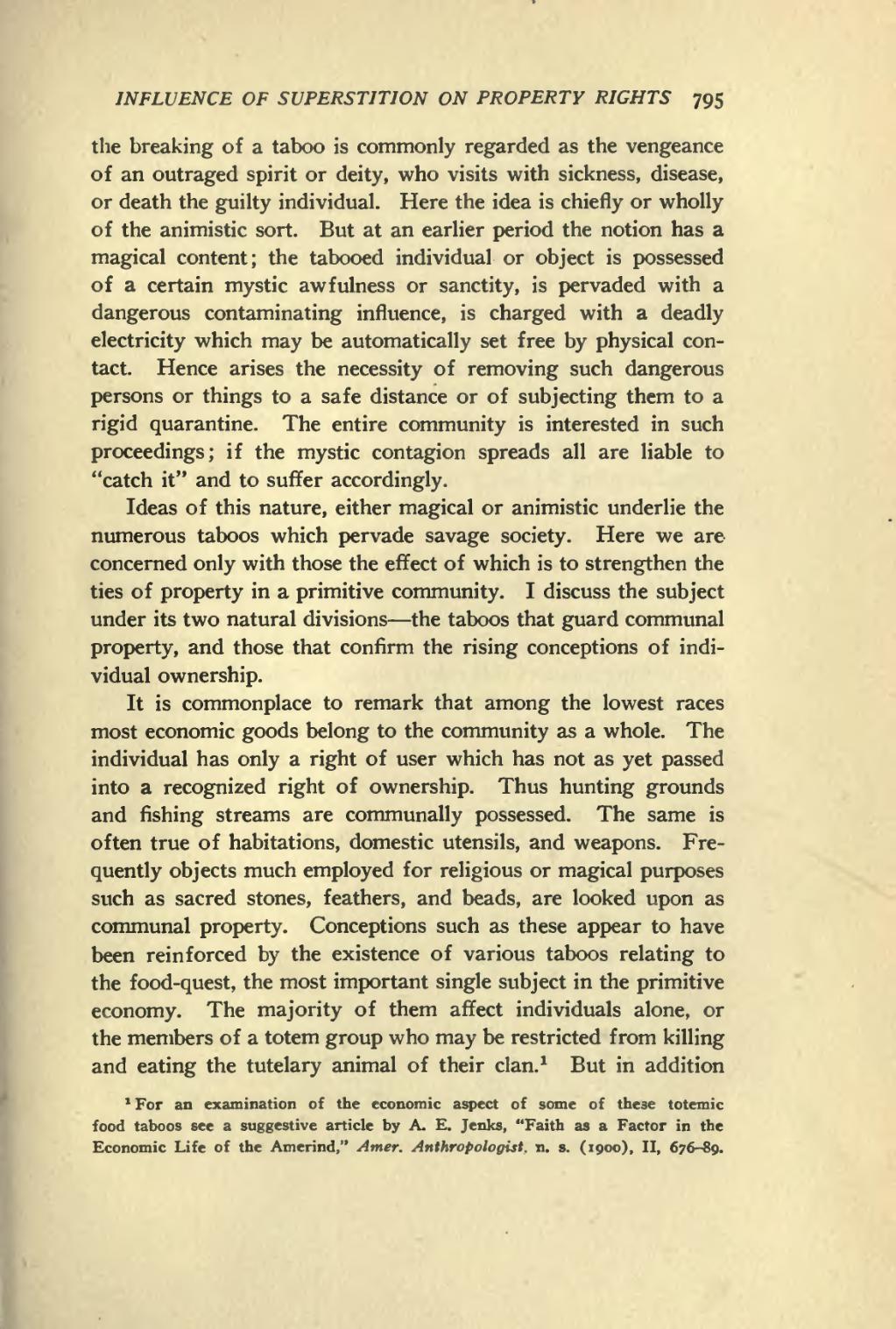INFLUENCE OF SUPERSTITION ON PROPERTY RIGHTS 795
the breaking of a taboo is commonly regarded as the vengeance of an outraged spirit or deity, who visits with sickness, disease, or death the guiUy individual. Here the idea is chiefly or wholly of the animistic sort. But at an earlier period the notion has a magical content; the tabooed individual or object is possessed of a certain mystic awfulness or sanctity, is pervaded with a dangerous contaminating influence, is charged with a deadly electricity which may be automatically set free by physical con- tact. Hence arises the necessity of removing such dangerous persons or things to a safe distance or of subjecting them to a rigid quarantine. The entire community is interested in such proceedings; if the mystic contagion spreads all are liable to "catch it" and to suffer accordingly.
Ideas of this nature, either magical or animistic underlie the numerous taboos which pervade savage society. Here we are concerned only with those the effect of which is to strengthen the ties of property in a primitive community. I discuss the subject under its two natural divisions — the taboos that guard communal property, and those that confirm the rising conceptions of indi- vidual ownership.
It is commonplace to remark that among the lowest races most economic goods belong to the community as a whole. The individual has only a right of user which has not as yet passed into a recognized right of ownership. Thus hunting grounds and fishing streams are communally possessed. The same is often true of habitations, domestic utensils, and weapons. Fre- quently objects much employed for religious or magical purposes such as sacred stones, feathers, and beads, are looked upon as communal property. Conceptions such as these appear to have been reinforced by the existence of various taboos relating to the food-quest, the most important single subject in the primitive economy. The majority of them affect individuals alone, or the members of a totem group who may be restricted from killing and eating the tutelary animal of their clan.^ But in addition
- For an examination of the economic aspect of some of these totemic
food taboos see a suggestive article by A. E. Jenks, "Faith as a Factor in the Economic Life of the Amerind," Amer. Anthropologist, n. s. (1900), II, 676-89.
